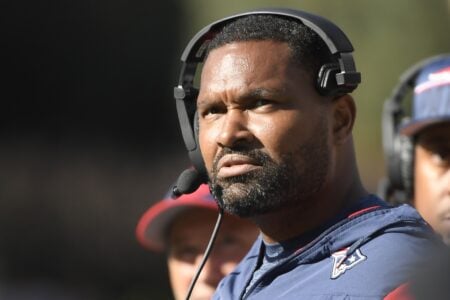Ricky Williams WAS sued, as was Michael Vick. And as you pointed out Williams was found in violation of his contract.
But you also left out many of the consequences. The team can send a 7(?) day letter. That means that if the player does not report, they can put him the list (Did not report?) and he is ineligible for the season. How can they do that if he has not breached his contract?
The 7 day letter is specifically a notification of breach of the contract.
By that definition, isn't a player who is IRed in breach of contract? That is also a list that makes him ineligible for the season. The Reserve/Did Not Report list is just like any other reserve list. I'm not too familiar with the seven day letter, but I believe that it is necessary because it must be issued before a team can seek remedy for breach of contract. Could be off on that one, though; they're issued so rarely, and so infrequently reported on, that I haven't become particularly familiar with them.
And I've actually spelled out my terminology very clearly throughout. I've said that I am using the term 'permitted' to mean "does not expose you to breach of contract liability". If you're claiming that it's possible to breach a contract within this definition, then so be it. It's a semantic point, and I'm not going to waste time debating it. How courts handle contract law is good enough for me.
You can't really believe that if a contract specifies the fine for a manner of breach of the contract then it cant be breached.
I believe that, if a contract lays out precisely what penalty can be assessed for failure to perform certain obligations laid out within it, and that penalty is paid as required, then the offending party has in that instance satisfied the terms of the contract. Functionally, this means that s/he would not be found to be in breach of the contract in the event of a lawsuit.
(Analogy below. Take it FWIW, I won't begrudge anyone choosing to ignore it entirely)
=====
Example: oilheat dealers frequently hedge against the potential for rising oil prices by purchasing forward contracts from oil suppliers. This allows them to lock in a certain (hopefully lower) price by promising to purchase a certain volume of oil at predetermined prices and predetermined dates. In the event of a warm winter month, end consumers frequently consume less than was projected, and as a result the dealer is not able to meet the purchasing obligation set forth in the contract. In of itself, this would constitute breach of contract, and the dealer would be exposed to a potential lawsuit. Luckily, there is a predetermined, agreed-upon penalty for under-lifting that's written right into the contract .
Why does the dealer agree to pay this penalty? Because it is an alternative means of satisfying the purchasing obligation. Both parties recognize that there is likely to be a scenario in which one party chooses not to fulfill its obligations on the contract, and as a result they agree upon a predetermined fee that is acceptable to both of them. The result is that the contract has not been breached and they can both stay out of court and maintain a productive business relationship.
======
By the same token, why do you think the NFLPA agreed to the fines and loss of free agency accrual that results from holdouts? The entire reason why these penalties exist is to shield holdouts from breach of contract liability so that every holdout doesn't end up in court. Since you seem to disagree that this is the case, I'm curious to hear what your explanation for them is.
The fine certainly does not state that it is a full completion of the duties contracted. You agree with that right?
The fine is an alternative method for fulfilling the contractual obligation. As a result, an attempt to sue someone who has paid the penalty for breach of contract will be unsuccessful.


















